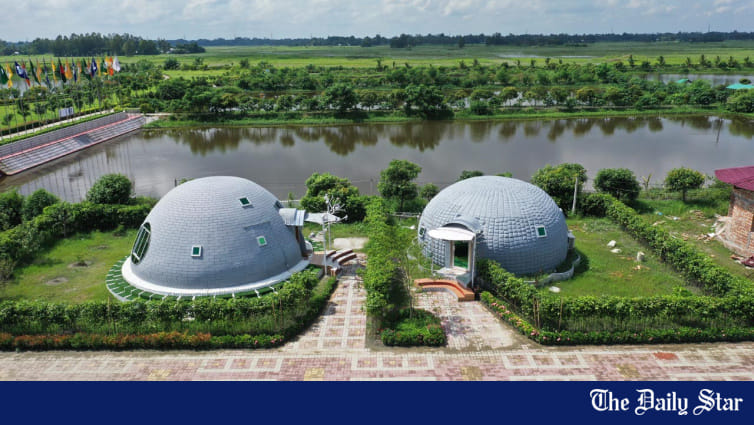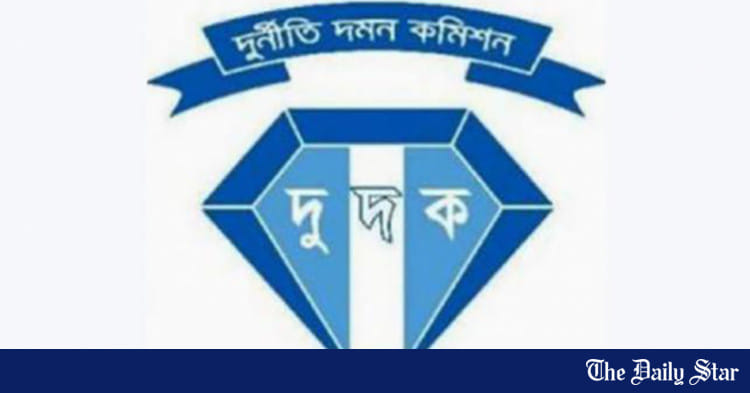Saif
Senior Member
- Joined
- Jan 24, 2024
- Messages
- 15,898
- Likes
- 7,990
- Nation

- Axis Group


Ex- IGP Benazir withdraws Tk 100cr from FDRs before bank account seizure
The Anti-Corruption Commission found that former inspector general of police Benazir Ahmed and his family members withdrew around Tk 100 crore from...
 www.newagebd.net
www.newagebd.net
Ex- IGP Benazir withdraws Tk 100cr from FDRs before bank account seizure
Staff Correspondent 31 May, 2024, 00:35

Benazir Ahmed.
The Anti-Corruption Commission found that former inspector general of police Benazir Ahmed and his family members withdrew around Tk 100 crore from their fixed deposits in different banks before the seizure of their bank accounts.
ACC officials said that they had specific information on the withdrawal of the money by Benazir from bank accounts and Fixed Deposit Receipts. The commission will place all the information before the court in this regard, they said.
When asked, ACC commissioner [investigation] Md Zahurul Haque on Thursday said, 'It is heard that he [Benazir] has withdrawn some money.'
'The ACC inquiry officer will see what was withdrawn from his bank accounts and it can be found only by checking his bank account,' he said.
ACC officials said Benazir started withdrawing the money step by step since the media reports claimed he and his family members amassed illegal wealth.
Earlier on Tuesday, the ACC decided to interrogate Benazir and his family members over their alleged accumulation of illegal wealth.
The former police chief was likely to be interrogated on June 6 at the ACC headquarters in the capital's Segun Bagicha, and his wife, Zeeshan Mirza, and other family members were likely to be interrogated on June 9.
Following a petition filed by the ACC on May 19, a Dhaka senior special judge's court ordered the seizure of all properties listed in 119 documents under the names of Benazir and his family members.
Apart from this, four companies under his family members' names and partial shares in 15 companies, four BO accounts, and four flats in Gulshan area have been instructed for seizure.
On May 23, the same Dhaka court also ordered the freezing of 33 financial accounts of Benazir and his family members and the seizure of 345 bigha of property listed in 83 documents under Benazir and his family members' names in Gopalganj and Cox's Bazar.
The court ordered the seizure of approximately 621 bigha of land in total owned by Benazir and his family members.
On April 18, the ACC at a meeting decided to carry out an inquiry against Benazir for allegedly accumulating illegal wealth after newspapers and electronic media ran reports in this regard.
The reports highlighted the lavish lifestyle of Benazir family and his holding of shares in different companies.
To read the rest of the news, please click on the link above.
Staff Correspondent 31 May, 2024, 00:35
Benazir Ahmed.
The Anti-Corruption Commission found that former inspector general of police Benazir Ahmed and his family members withdrew around Tk 100 crore from their fixed deposits in different banks before the seizure of their bank accounts.
ACC officials said that they had specific information on the withdrawal of the money by Benazir from bank accounts and Fixed Deposit Receipts. The commission will place all the information before the court in this regard, they said.
When asked, ACC commissioner [investigation] Md Zahurul Haque on Thursday said, 'It is heard that he [Benazir] has withdrawn some money.'
'The ACC inquiry officer will see what was withdrawn from his bank accounts and it can be found only by checking his bank account,' he said.
ACC officials said Benazir started withdrawing the money step by step since the media reports claimed he and his family members amassed illegal wealth.
Earlier on Tuesday, the ACC decided to interrogate Benazir and his family members over their alleged accumulation of illegal wealth.
The former police chief was likely to be interrogated on June 6 at the ACC headquarters in the capital's Segun Bagicha, and his wife, Zeeshan Mirza, and other family members were likely to be interrogated on June 9.
Following a petition filed by the ACC on May 19, a Dhaka senior special judge's court ordered the seizure of all properties listed in 119 documents under the names of Benazir and his family members.
Apart from this, four companies under his family members' names and partial shares in 15 companies, four BO accounts, and four flats in Gulshan area have been instructed for seizure.
On May 23, the same Dhaka court also ordered the freezing of 33 financial accounts of Benazir and his family members and the seizure of 345 bigha of property listed in 83 documents under Benazir and his family members' names in Gopalganj and Cox's Bazar.
The court ordered the seizure of approximately 621 bigha of land in total owned by Benazir and his family members.
On April 18, the ACC at a meeting decided to carry out an inquiry against Benazir for allegedly accumulating illegal wealth after newspapers and electronic media ran reports in this regard.
The reports highlighted the lavish lifestyle of Benazir family and his holding of shares in different companies.
To read the rest of the news, please click on the link above.







































